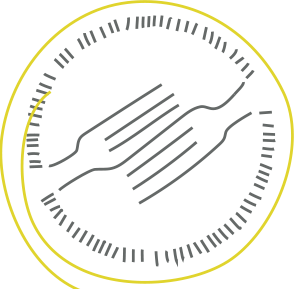No Quick Fix for Weight Loss
When working one on one with folks, an extensive initial evaluation is in order. I meet people in the comfort of their own home and we chat for roughly two hours. One of the first questions I ask, “What are your goals in working with me?” And nine out of ten times weight loss is numero uno on the list (whether someone needs to lose weight or not). A snippet of what we talk about is health history, family health history, medications and supplements, allergies (to food or other) and relationship with food (as in what was your diet like growing up, who cooked, etc.); we touch on exercise, dive into what you eat in a day and then I once again ask, “Can you re-think what your goals are in working with me?” And most of the time the answer is something like this, “To gain a better understanding of what a healthy diet is for me and to shift my eating habits to support my overall health.” Halleluyah!!! And then there is a pause…”Do you think that I will still lose weight?”
What I find so incredibly ironic is that the United States, a nation so obsessed with weight loss is literally the fattest country in the world. Go figure. According to Business Insider, analysis of Google data suggests that of the searches for "How To Lose Weight" and “Weight Loss” (roughly 30 million searches per month on this topic alone) more than 50 percent of them included the keywords “fast” and/or “quick”.
Newsflash, weight loss is not something that can be done quickly. Inevitably it ends in failure. Trust me as I have seen it over and over again with clients. Achieving weight loss and maintaining a healthy weight requires shifting deeply ingrained behaviors and lifestyle habits. And another newsflash—healthy weight loss means shedding 1-2 pounds per week! So folks, there is no quick fix here. I applaud the Mayo Clinic for their 6 Strategies for Success when it comes to losing the extra pounds:
- Make a commitment
- Find your inner motivation
- Set realistic goals
- Enjoy healthier foods (and this does not mean fat-free or sugar-free processed foods)
- Get active and stay active
- Change your perspective
It’s a layered problem (no pun intended), and most often the added pounds can be a symptom of clinical illness (or imbalance), food choice, food behavior and a sedentary lifestyle. Thus, with the right help your extra weight can be lost and maintained—and not by fad diet books.
So, avoid the quick fixes and take these few initial steps to kick off the pounds:
- Start with a close look at what you are eating (keeping a food diary for a week or even 3 days is a surefire way to check-in with what you are really eating)
- Identify the extra sugar, fat and simple overconsumption of food and start to limit intake
- If needed, seek the support of a qualified nutrition professional to help guide you with healthy weight loss
- Add regular exercise to your routine but be sure to find the right exercise for you; if possible, seek the support of a qualified trainer to point you in the right direction (as a side note, be careful about taking dietary guidance from a trainer—this is typically not their area of expertise)
- If you are doing all of the above without success, seek the care of a medical doctor and have your hormones checked (oftentimes, problems with weight loss can be a result of hormone imbalances that can easily be corrected with proper supplementation and specific dietary shifts)
Let’s keep this conversation going. Please feel free to share your thoughts and opinions. I would love to hear from you!

